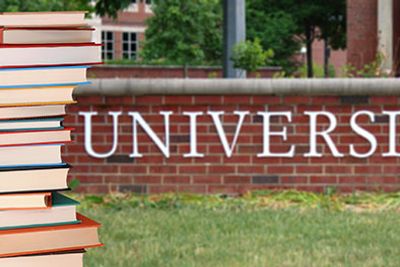By Liz Massey, June 2017 Issue.
It seems that everyone has a couple of mostly useless “superpowers,” and one of mine seems to be remembering the exact date of several major milestones in my life. For example, I remember the date of what I consider to be my official coming out: Jan. 16, 1990, when I scribbled my declaration on a paper napkin at the student union and came out to one of my classmates.
And I remember a date later that year when my LGBTQ pride was born: Oct. 31, 1990. Just as important as my actual coming out process, this date marked the first time I truly felt myself to be a part of the LGBTQ community.
It had been a tense fall on the campus of the Midwestern university I was attending. There had been a smattering of anti-gay hate graffiti found around town, and students had protested the ROTC allowing military recruitment on campus when gays and lesbians were banned from serving. This prompted two peaceful, if somewhat raucous, protests at the Chancellor’s residence, which was located a half-block from where I lived.
After participating in one of these protests, I wrote a guest opinion column for the student newspaper that called out the Chancellor for his silence. It wasn’t a firebrand’s rallying cry; in fact, reading it over now, 27 years later, I’m actually impressed how measured and empathetic my tone was.
The column was published on Oct. 25, and I was summoned to the Chancellor’s office later that same day. As soon as I sat down, the Chancellor launched into a rant about my column, laboring under the false assumption that I had covered the rally as a reporter for the newspaper AND participated in it – which wasn’t true. After harping for a few moments on my alleged professional deficiencies, the Chancellor ended with, “Well, you’ll never work for the New York Times – or any other good newspaper.”
Back out on the street on campus, my numbness turned into anger. I didn’t really care if I ever got a gig with the New York Times – I just wanted the Chancellor to realize I wasn’t the sloppy journalist he had described me as.
I met with the university ombudsman the next day and told him I wanted the Chancellor to apologize. He suggested I write to the Chancellor and suggested that I cc: him on the letter.
In my letter to the Chancellor, I laid out point by point where he had been mistaken and requested an apology. I delivered a copy to the Chancellor’s office and one to the ombudsman, then went back to the business of being a college senior.
Several days later, I went for a run in the afternoon and came back to my hall to cool down. I saw a message that my father had called, so I got on the phone with him and was listening to one of his stories about empty-nest life with my mother when one of my hallmates handed me a piece of paper. It said, “The Chancellor is waiting for you in the lobby.”
I had a bit of a quandary … my dad didn’t know about the newspaper column, and I didn’t want to tell him right then. So, after making the Chancellor wait for about 10 minutes (and causing a significant stir in my hall!) while I tried to wind up the conversation with my father, I blurted to my dad that, “The Chancellor of the university is here to see me, I’ve got to go now.”
What the Chancellor delivered was less of an apology than an acknowledgement that he’d gotten his facts wrong. But it was typed on his letterhead and signed by him. Only two or three lines long, it was still vindication.
After the Chancellor hand-delivered his apology, I wrote my parents to tell them the entire story. My father’s letter in reply started off with a rousing line of encouragement: “Well, it looks like you climbed out of that sewer all covered in honey.” That helped me know that when I was ready to come out to them (which happened about nine months later), everything would be OK.
I say that my pride was born on that day – Halloween 1990 – because despite not being out to more than a handful of people at that point, I realized that my words promoting LGBTQ equality had power. I realized that large institutions had checks and balances in place, that sometimes gave marginalized people power. I also realized that I had managed to secure the support of allies, including the ombudsman, and that had given me courage.
More than anything else, though, my actions that week made me proud of myself, perhaps for the first time in my adult life. Putting myself in the cross-hairs of the university’s top administrator wasn’t easy for me. But I persisted in advocating for myself and others because it was the right thing to do, and that forever changed how I viewed my connection to the LGBTQ community.
